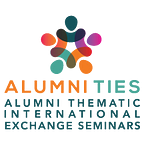Where There’s a Will, There’s a Way: Improving Digital Media and Information Literacy for Professional Journalism
By Farzana Ali
Journalism in Pakistan is historically a conservative and a male-dominated career field, leaving very few opportunities for women journalists. This inequity is especially seen in the traditionally conservative Khyber Pakhtunkhwa and FATA districts. Currently, the media industry is in a state of flux and there are no job opportunities available within mainstream media organizations, which are presently undergoing massive downsizing due to a financial crunch. Within this context, it is important to build digital media literacy, in particular, content development skills of young women, who can then use this medium to create their own content and gain access to opportunities outside of mainstream media. In order to address this issue, my project team and I created the “Improving Digital Media and Information Literacy for Professional Journalism” workshop.
After participating in the Alumni Thematic International Exchange Seminar (Alumni TIES) that took place in Almaty, Kazakhstan in November 2019 on the topic of “Women in Media: Creating Networks for Social Change,” I developed this project to take place in the Khyber Pakhtunkhwa and FATA districts of Pakistan. Our workshops aim to develop digital media production and content development skills of emerging, female journalists and journalism students in these districts.
In the beginning, the original plan was to start our training session at three different universities in March 2020, and we identified Gomal University as the first university to host a training workshop. However, with the arrival of COVID-19 restrictions introduced in March, all in-person activities were no longer possible. With university classes quickly transitioning online and the increasing uncertainty of the global situation, it soon became clear that traveling and any planned in-person activities would be postponed to the end of the year. After coming to this realization, the trainers made a collective decision to switch the training to a webinar. Despite the new online format, the material and planned discussions with journalism experts and these women did not change. The first training sessions took place in June 2020, over two days with each session lasting a total of two hours. Participants discussed topics such as the ethics of digital journalism, countering digital disinformation, using digital tools for journalism, and capitalizing on the digital content market. Additionally, the webinars were also recorded in order to reach a wider audience by uploading them online afterwards. Moreover, our trainees were encouraged to write articles about the trainings or topics of media literacy that they found interesting. One of our participants Urwa Ahmad, a student from Gomal University, wrote an article about how fake news has affected the reputation of her Facebook page. We recently concluded our training webinars with our final group of emerging journalists from the Tribal district of Pakistan. During the session, participants shared their experience with journalism and how they will expand their journalism skills and careers.
As a resident of a remote area of Pakistan, I know how important this opportunity was for emerging women journalists and students, considering that most opportunities to connect with other professional journalists in the field were often exclusively for men. These training webinars opened new doors, sparked innovative conversations, and empowered women journalists by improving their digital media and media literacy skills.
Improving Digital Media and Information Literacy for Professional Journalism is funded through an Alumni TIES small grant from the U.S. Department of State
